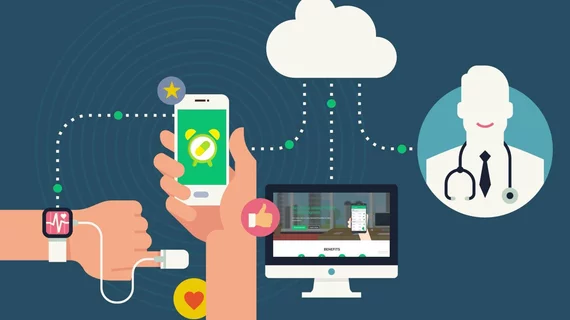90% of US adults use at least 1 digital health tool
Nearly 90 percent of American adults are using at least one digital tool—such as an app or wearable device—to monitor their health, according to a report and survey by Rock Health.
Last year, the organization surveyed 4,000 American adults in an effort to shed light on how consumers are using technology-driven healthcare innovations. Researchers said success in the digital health market hinges on a company’s ability to empower patients, democratize information, providing patient access to medical records, improving access to care and lower healthcare costs.
According to the report, more people are increasingly turning to digital tools for their healthcare needs. Survey results revealed that about 87 percent of people are using at least one digital health tool in 2017. In 2015, it was 80 percent.
The survey also revealed that 19 percent of people use live telemedicine, 24 percent use wearable devices, 58 percent use online provider reviews and 79 percent use online health information.
The top reasons for the use of a wearable device were to track physical activity (54 percent), weight loss (40 percent), sleep (24 percent) or stress (18 percent).
Some people with self-identified health challenges also track their health with apps. Eleven percent of people track their medications with a digital app, 11 percent of people with high blood pressure track it with an app, 20 percent of obese individuals track their weight with an app, 29 percent track their diet with an app, and 56 percent of people who track their physical activity use an app.
Additionally, the survey revealed people are most willing to share their health data with physicians (86 percent), health insurance providers (58 percent) and pharmacies (52 percent). Forty-four percent said they would share it with a research institution, 21 percent would share with a pharmaceutical company, 13 percent with a government organization, and 10 percent with a tech company.

